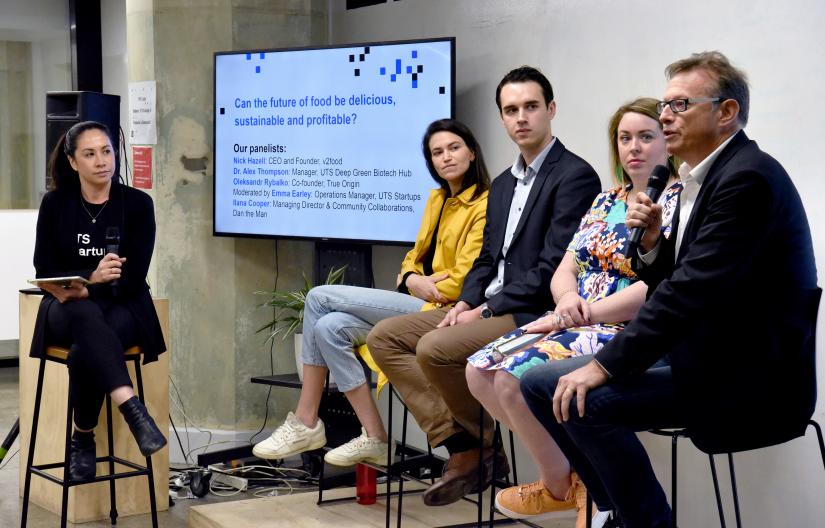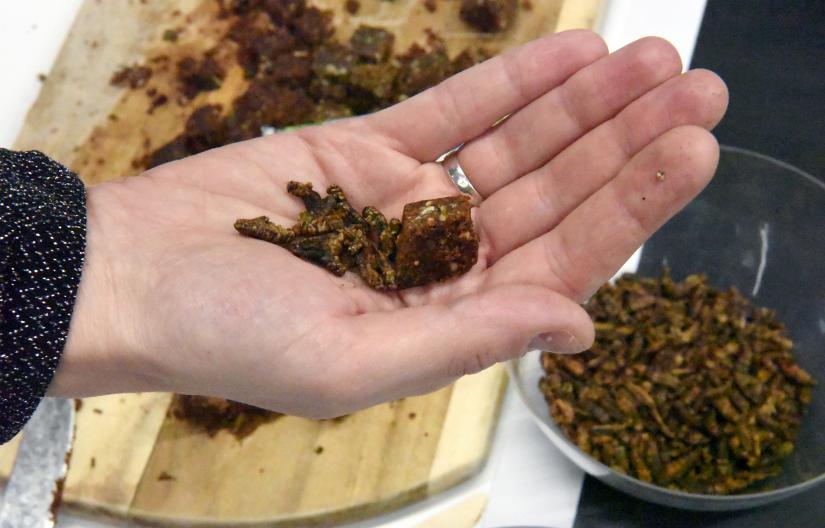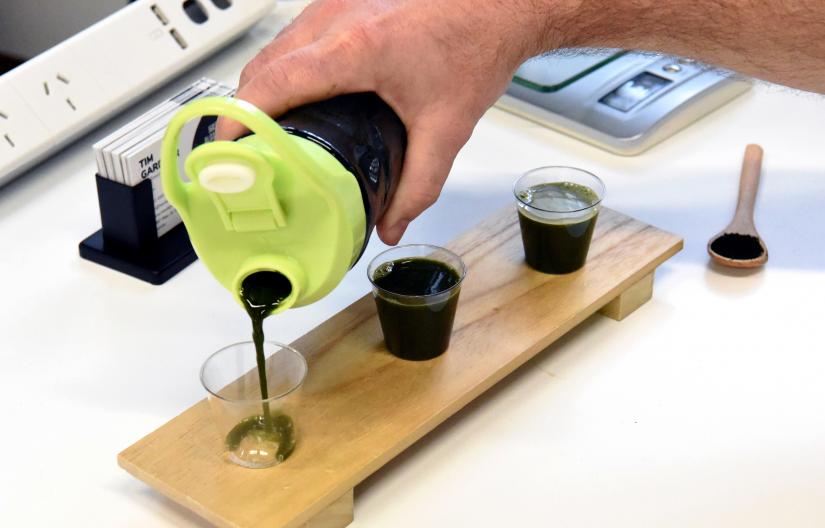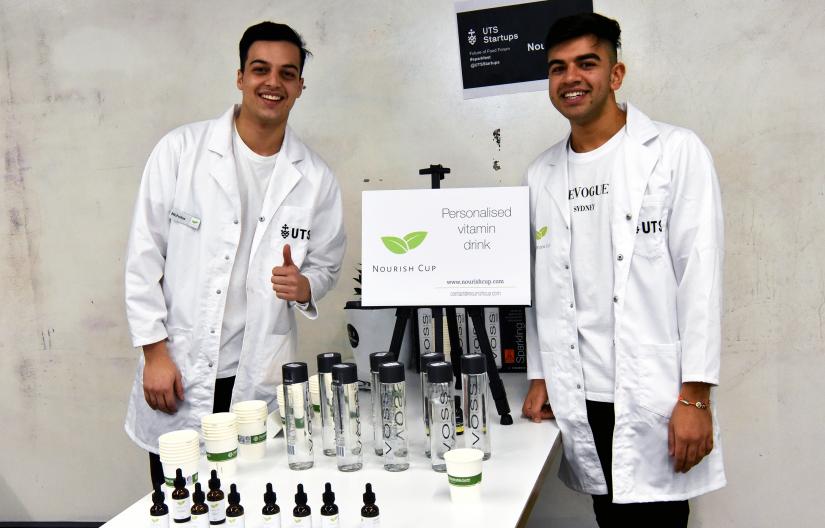It’s not “wrong” to turn a profit while also tackling the world’s climate, population and food challenges, says Nick Hazell, UTS Lecturer and CEO and founder of v2food, a developer of plant-based meat alternatives that has just signed a deal with hamburger chain Hungry Jack’s.

Dan the Man catering helped host the lunch. Picture by Lesley Parker
“Our job, as designers and as CEOs, is to build a business that’s economically viable – and if it’s very viable we might be able to scale quickly and actually have a real impact,” he told the Future of Food Forum at the University of Technology Sydney (UTS). “It’s not wrong to be economically viable. This is an existential crisis and it isn’t going to be won just through charity,” he said.
The Future of Food Forum, hosted by UTS Startups and the Deep Green Biotech Hub, was part of the Spark Festival for startups, innovators and entrepreneurs. It explored how food security, technology, population growth and climate change mean innovation is crucial to the future of food, with moving towards a plant-based diet increasingly seen as the single biggest way an individual can reduce their overall environmental impact.
The forum also asked the question: can the future of food be tasty, sustainable and profitable? Big business is certainly starting to ride the wave of food sustainability, and food sustainability is becoming big business.

Future of Food Forum panellists. From left, Ilana Cooper, Oleksandr Rybalko, Dr Alexandra Thompson and Nick Hazell. Picture by Lesley Parker
In the United States, plant-based alternatives company Beyond Meat was valued at $US1.5 billion in a stock market float earlier this year, while a recent Deloitte Australia report estimated that the plant-based meat sector could boost our economy by up to $3 billion and create more than 6,000 full-time jobs by 2030.
Hazell launched v2food (“Food version 1 just isn’t good enough”) in 2018 with the help of the CSIRO’s Innovation Fund and with Competitive Foods Australia, the company behind Hungry Jack’s, also contributing seed funding. Hungry Jack’s has just put a v2food patty on its menu in the form of the “Rebel Whopper”.
Hazell says his goal was to come up with a meat alternative that appealed not just to vegetarians but also to meat lovers, because the goal must be to reach a mass market with plant-based products. “Most of us make easy decisions based on what we like. [As businesses] we should design products that work for people, so they’ll choose them, that also work for the planet at the same time.”

Grilo means “cricket” in Portuguese. Grilo Protein believes crickets are a healthy and sustainable food of the future. Picture by Lesley Parker
Panellist Ilana Cooper, Managing Director of Dan the Man, a catering company that’s working towards being a zero-waste business, said the desire to eliminate food waste was grounded in personal values but had also generated a positive reaction from customers. Customers are “so proud to put their dollars behind it”, she said.
There was another business imperative, she noted. “This is what needs to happen anyway to future proof your business. You're not going to be a successful business unless you consider the whole ecosystem and the real costs.”
UTS startup True Origin is tapping into consumer demand to know more about the environmental impact of products, with an app-based service that shares more information than can be printed on a food label. Brands will be able to attach a sticker bearing a unique product code that consumers can scan with their phones to access information on factors such as carbon footprint and provenance.

Startups like Has Algae are working on improving the nutritional profile of everyday foods by harnessing micro-algae. Picture by Lesley Parker
Co-founder Oleksandr Rybalko told the forum that one of the trends he is seeing is that consumers are more willing to accept ingredients coming from sources such as algae, so businesses want to communicate that sort of information.
In a discussion about whether people need to go “back to basics” to relieve the pressure on the planet from food production and food waste, Dr Alex Thompson, Manager of the Deep Green Biotech Hub, said it was a case of combining the best from the past with the innovation that scientists can deliver.
“We can’t go back to how things were, because things are not the same,” she said. “Temperature ranges are not the same, water availability is not the same, there are more people encroaching on the land. So, while it’s beneficial to look back, we also need to think differently, we need to collaborate with science.

UTS startup Nourish Cup is developing personalised drinks infused with vitamins tailored to individual deficiencies. Picture by Lesley Parker
The Deep Green Biotech Hub, based at the University of Technology Sydney, brings together researchers, SMEs, industry, startups, students and others to work on algae-based biotechnology innovation.
“At UTS we’re interested in how algae can play into this. How can producing the food that we eat use less space, use less water, grow quickly and in a variety of places?” Thompson said. “Algae is the cutting edge of that.”

